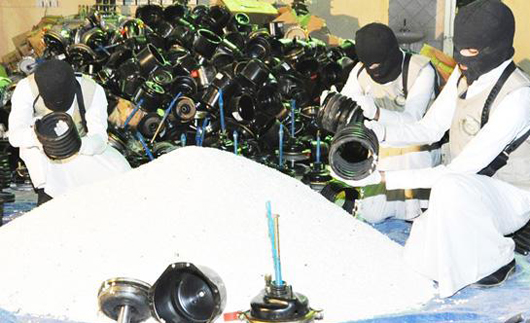
Riyadh, Nov 28: The GCC plans to set up a joint police force to tackle organized crime syndicates, terrorist groups, drug smugglers and human traffickers.
The force, dubbed the Gulf Interpol, would have its headquarters in Abu Dhabi with Emirati Lt. Col Mubarak Al-Khayli as its chief, said a GCC statement released on Thursday. The GCC body would be similar to Europol, the European Union’s law enforcement agency that handles criminal intelligence and deals with organized crime.
“The GCC interior ministers have given the green light to the plan to set up the police force because large-scale criminal and terrorist networks pose a significant threat to the internal security of the GCC and the safety and livelihood of its people,” said the statement.
The GCC statement said the force would help counter cross-border criminal activity in the region. “There is a need to lay down a clear-cut strategy to combat all crimes, particularly drug trafficking and money laundering,” said Kuwaiti Interior Minister Sheikh Mohammad Al-Khalid Al-Sabah, who chaired the ministers’ meeting in Kuwait City.
“All GCC member states will subscribe to a joint criminal database, with each appointing a representative to act as a point of contact with the GCC police force,” said Abdullatif Al-Zayani, speaking after the meeting.
He said the presidency of the body would rotate among the six member states every three years.
The GCC police force would operate under the security department of the GCC general-secretariat, which acts as a central database and information exchange unit, he said. The GCC ministerial council is set to ratify the plan before presenting it to the 35th GCC summit scheduled to take place in Doha on Dec. 19.
Hassan K. Alotaibi, a political analyst, said: “This is an ambitious security project with added significance ... Moreover, it will be interesting to see the composition of the Gulf Interpol because the GCC states have their own police and public security systems, different from one another.”
Saudi Arabia, for example, has a regular police force, a secret police unit and religious police, he added.
He said the Gulf region was becoming more vulnerable to international drug trafficking, money laundering, organized fraud, counterfeiting of Gulf currencies, people smuggling and cybercrime.






Comments
Add new comment